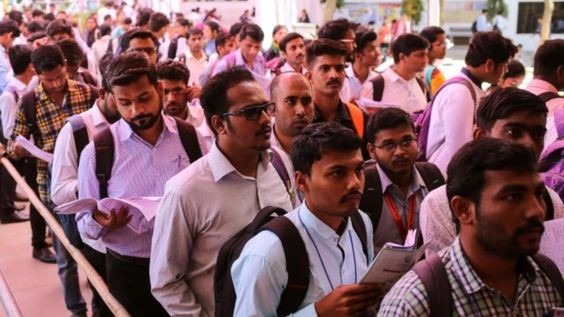Menu

As a nation we deliberately did not create robust systems & processes for vocationalization of education at schools(TVET) to increase the marginal productivity & lowered unemployment rates amongst people who worked by hand.
A detailed analysis of three stakeholders (industry, students, teachers &school administrators) clearly shows why as a nation we never created an ecosystem & robust system to skill large section of people through compulsory vocational education at schools like in Germany, Sweden, Switzerland, China, Indonesia, Philippines etc
In order to become skill capital of the world it is essential that India should focus on-3S
Scale (to skill 15 to 18 million youth every year) Standards (quality of content, skill labs for practical learning ,teachers, assessors and practical on the job training & apprenticeship) Speed(by 2030 the nation must skill 500 million youth across the nation).
Such a scale is possible only and only through mandated by law high quality skill delivery through 1,23,265 secondary schools and 60,383 senior secondary schools. Currently 28.9 million students are enrolled at secondary level and 16.6 million students are enrolled at senior secondary level.
We have no skill labs for practical training at schools &skill centres as we are teaching skills by theory &rote rather than hands on practical training in the skill labs at schools and skill centres. The schools in the countries like Indonesia, Philippines, Iran have world class skill labs at schools.
Lack of written policy-procurement procedures and systems on skill Labs at schools & lack of adequate financial allocation for skill lab to states .
Lack of written down transparent policy-procedures & systems for sector specific Skill teachers selection, their practical hands on training , their certification &growth path and financial compensation.
Out of 346 NOS (National Occupational Standards)at Level 4 , NSQF compliant & learner centric accredited content is available only for 32 NOS.
Adequate financial resources for PSSCIVE (NCERT) with stiff deadlines to produce NSQF compliant & learner centric accredited content for 100 NOS within next 12 months.
As per ministry of company affairs 90 %of the companies in India are proprietary firms & 6% are partnership firms under MSME sector where no centralized database is available as their registration by law is not needed.
If 18.5 crore people are employed in MSME, it is essential to have centralized plus district wise MSME database for students apprenticeship-placement or entrepreneurship linkages .
No local role model based advertising & TV shows exist in media to promote image of skill workers their success in jobs .eg if a girl from a rural Rajasthan schools learns welding & today is called Robo welder Rani and is one of the finest welder with a large Indian company. Her story is an inspiration to most of the girls. Similarly TV shows promoting & advertisements success stories of such local heroes who have made a mark in life will slowly but steadily change image of skilled workers.
Create a well-crafted media based stories of highly accomplished skilled workers as role models backed with adequate media budgets.
Advisory Council -NCN